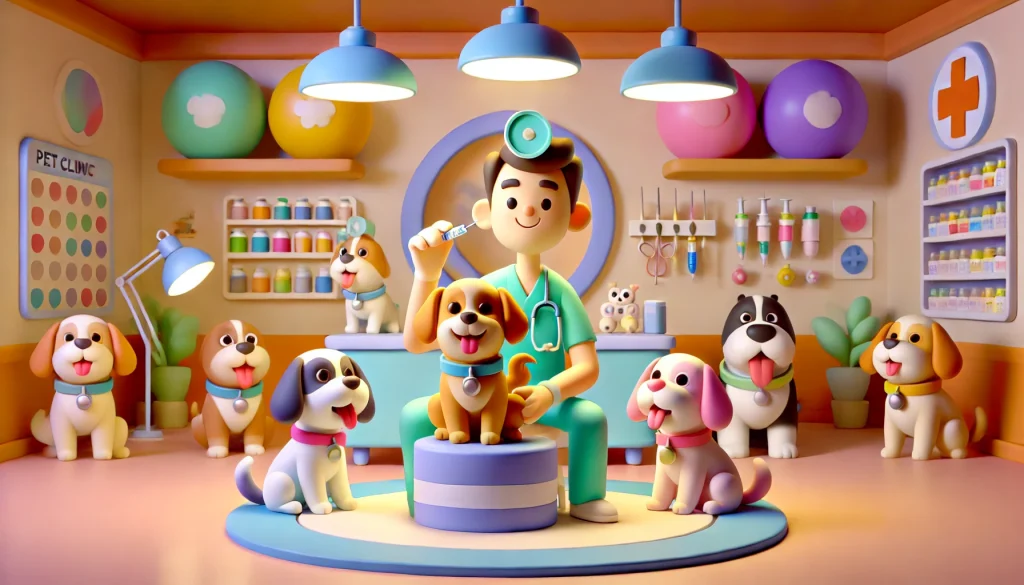Vaccinating your dog is one of the most essential steps in safeguarding their long-term health and well-being. Modern veterinary medicine has made it possible to prevent numerous life-threatening diseases through safe and effective vaccines. As responsible pet owners, understanding why vaccinations matter, which vaccines your dog needs, and when to administer them is crucial. This comprehensive guide will walk you through every key aspect of dog vaccination, providing clarity, expert insights, and reliable resources to help you make informed decisions about your dog’s preventive healthcare.
At CarePet.ai, our mission is to empower pet owners with trusted, science-based information that supports healthier, happier lives for pets everywhere. Whether you’re a new dog parent or an experienced guardian, proactive vaccination remains one of the foundational elements of maintaining your dog’s health throughout its life.
For expanded veterinary guidance and national health standards, consider visiting reputable organizations such as the
American Veterinary Medical Association (AVMA) and the
ASPCA. These resources complement the information provided in this article and offer expert insights on preventive pet care.
Why Dog Vaccination Is Essential for Your Pet’s Well-being
Vaccines are a cornerstone of modern veterinary care. Similar to humans, dogs are susceptible to numerous infectious diseases that can severely compromise their immune systems or even result in death. Many of these diseases spread rapidly among pets, creating serious public health risks if not properly controlled. Vaccinating your dog helps protect them while also supporting community health by preventing outbreaks. When a large percentage of pets are vaccinated—also known as herd immunity—the likelihood of disease spreading decreases dramatically. This is why veterinarians strongly emphasize following a consistent and timely vaccination schedule, especially during puppyhood.Core Vaccines Every Dog Needs: What You Should Know
Veterinarians classify certain vaccines as “core,” meaning they are essential for all dogs regardless of breed, size, or lifestyle. These vaccines protect against the most dangerous canine diseases and are considered mandatory in many regions.- Rabies: A fatal viral disease that attacks the nervous system and can be transmitted to humans. In most regions, rabies vaccination is legally required.
- Distemper: A severe viral infection that affects a dog’s respiratory, gastrointestinal, and nervous systems.
- Parvovirus: A highly contagious and often deadly disease causing extreme gastrointestinal distress, especially dangerous for puppies.
- Adenovirus (Canine Hepatitis): A virus that affects the liver, kidneys, and other internal organs.
How Vaccination Protects Your Dog from Deadly Diseases
Vaccines work by safely stimulating your dog’s immune system. They introduce an inactive form of a pathogen—or a fragment of it—prompting the body to develop antibodies. These antibodies act as the immune system’s memory, enabling the body to recognize and fight off the real pathogen if your dog encounters it later. This controlled form of immune training is what keeps vaccinated dogs protected from severe disease, even when exposed to infectious agents in the environment. Without vaccination, dogs face significantly higher risks of contracting dangerous illnesses that can lead to chronic health problems or death. For additional reading on how vaccines work, sites like PetMD provide excellent veterinarian-written explanations.When Should You Vaccinate Your Dog? A Comprehensive Timeline
The exact vaccination schedule for your dog may vary depending on their age, breed, health status, and veterinary recommendations. However, the following timeline is widely used as a general guideline:- Puppies (6–8 weeks old): First distemper, parvovirus, and adenovirus doses.
- 12 weeks old: Second round of core vaccines and optional vaccines like leptospirosis.
- 16 weeks old: Final core vaccinations, including rabies.
- 1 year old: Booster shots for distemper, parvovirus, and other core vaccines.
- Every 1–3 years: Ongoing booster shots based on your vet’s advice.
Common Side Effects of Dog Vaccines and What to Expect
Most dogs tolerate vaccinations well, experiencing minimal side effects that usually disappear within 24–48 hours. Common reactions include:- Slight fever
- Mild lethargy
- Soreness around the injection site
- Temporary loss of appetite





